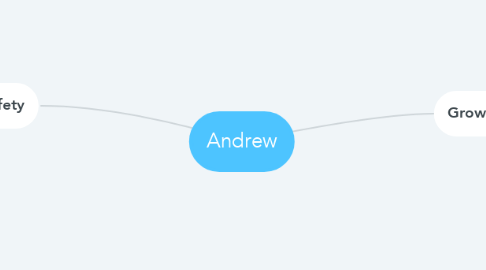
1. Growth & Development
1.1. Risk of Reoccurring Infection
1.1.1. Ineffective skin barrier
1.1.2. Invasive procedures (Exposure to sources of infection)
1.1.2.1. Oxygen requirements
1.1.2.1.1. Nebulizer
1.1.2.2. Feeding problems
1.1.2.2.1. NG tube
1.1.2.3. Medication administration
1.1.2.3.1. Infection at IV site
1.1.3. r/t No immunization history
1.1.3.1. Preterm infants are at increased risk of infections in general and suffer from an increased frequency and severity of vaccine preventable infections (Bonhoeffer, 2006).
1.1.4. d/t RSV; An inflammation leading to the obstruction of the small respiratory airways
1.1.4.1. CRP: 13.5 mg / L (normal: < 10 mg / L)
1.1.4.2. Signs & Symptoms
1.1.4.2.1. Pale, lethargic, irritable
1.1.4.2.2. Dry mucous membranes; cool hands & feet
1.1.4.2.3. Laboured breathing with subcostal chest retractions; tracheal tug, nasal flaring & audile expiratory wheeze
1.1.4.2.4. Moist cough & nasally congested
1.1.5. r/t Anemia
1.1.5.1. Hgb: 93 g / L (normal: 110 – 130 g / L)
1.1.5.2. HCT: 0.28 l/L (normal: 0.33 – 0.39 L / L)
1.1.5.3. MCV: 53 fL (normal: 70 – 86 fL)
1.2. Impaired Nutrition: Less than Body Requirements
1.2.1. d/t Status as a Preterm Infant: immunological immaturity
1.2.1.1. Major organs are underdeveloped
1.2.1.1.1. Immaturity of Lungs
1.2.1.1.2. Immaturity of GI system
1.2.1.2. Immaturity of developmental characteristics
1.2.1.2.1. Lack of coordinated suck, swallow, and breathe reflexes (Hockenberry et al., 2013).
1.2.2. d/t Inadequate intake of calories by being a "picky eater"
1.2.2.1. Usually has four bottles of 2% milk each day, eats small amounts of finger foods
1.2.2.1.1. At risk of iron deficiency anemia as milk in low in iron and inhibits the absorption of iron in the body. Infants who drink too much milk become iron deficient (Healthy Families BC, 2015).
1.2.3. r/t Strict vegetarian diet of eggs and milk
1.2.3.1. Inadequate iron and ferritin levels, which are an indication of iron deficiency
1.2.3.1.1. Serum Iron: 8 mcmol/L (normal: 9-21.5 mcmol/L)
1.2.3.1.2. Serum Ferritin: 5 mcg/L (normal: 7-140 mcg/L)
1.2.4. r/t Dietary restrictions & modifications d/t risk of allergies
1.2.4.1. Children may experience "food refusal, food aversion, food neophobia, and anxiety about eating" (Harshna, 2014, p_).
1.2.4.1.1. Andrew has been having a lack of appetite
2. Cultural Safety
2.1. Medication Noncompliance
2.1.1. r/t: Lack of knowledge of the benefits of complying with treatment
2.1.1.1. Believes in vaccine-induced autism
2.1.2. r/t Religious beliefs & values of Mother (Rachel)
2.1.2.1. Christianity
2.1.2.1.1. Opposes human interventions with medications or other therapies (Hockenberry et al., 2013).
2.1.2.1.2. Accepts legally required immunizations (Hockenberry et al., 2013).
2.1.3. r/t Health beliefs of Mother (Chelsea)
2.1.3.1. Does not like medications or give medications to her children
2.1.3.2. Never received immunizations as a child, and her own children are not immunized
2.1.3.3. Adheres to natural and herbal remedies when it comes to food and health practices
2.1.3.4. Follows a strict vegetarian diet of eggs and milk
2.1.4. r/t: Stressful lifestyles
2.1.5. r/t: Lack of financial support
2.2. Impaired Parenting
2.2.1. r/t Lack of knowledge about child health maintenance
2.2.1.1. Rachel's refusal of immunizations d/t fear of vaccine-induced autism
2.2.2. r/t Separation and interruption of parent-infant attachment secondary to preterm birth
2.2.2.1. Hospitalized during his newborn period for feeding problem and oxygen requirements
2.2.3. r/t Inappropriate child arrangements
2.2.3.1. Mom: Rachel
2.2.3.1.1. Stressors
2.2.3.2. Dad: Bertram
2.2.3.2.1. Stressors
2.2.4. r/t Parent anxiety in pre-term/ care
2.2.4.1. Lack of knowledge about Andrew's health condition and prognosis
2.2.4.2. Inability to perform expected caregiving activities
2.2.4.3. Healthcare experiences
2.2.4.3.1. Neonatal intensive care unit (NICU) environment and high-tech care
2.2.5. r/t Parental Controlling Behaviours
2.2.5.1. Does not allow Andrew to make decisions about his own diet yet
2.2.5.2. Allows Sara to choose her own diet

